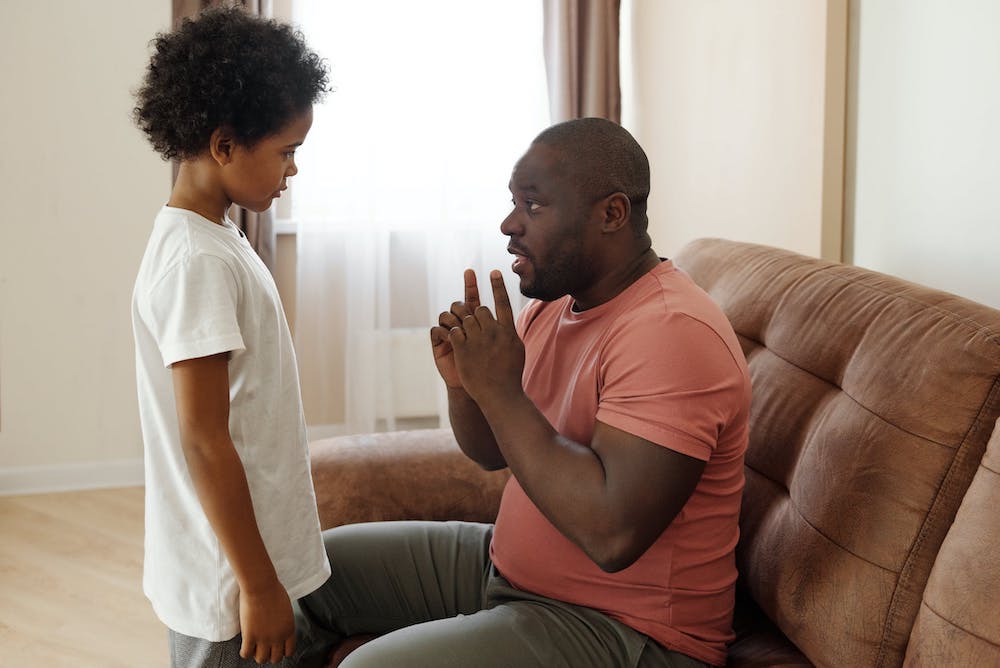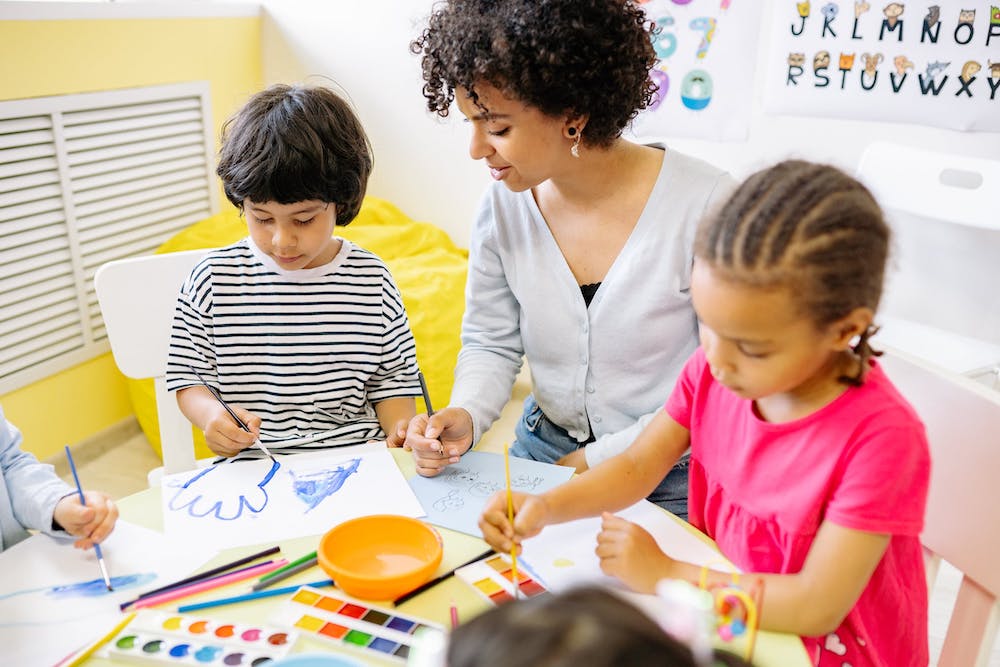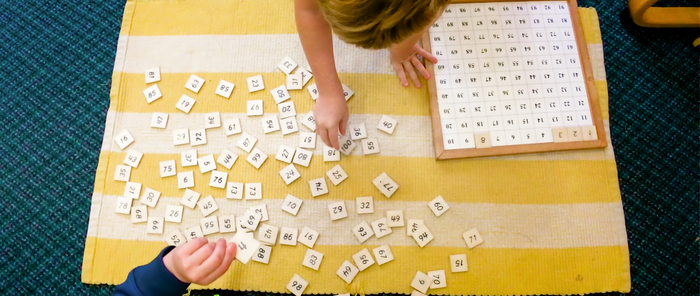For healthy development, your child should develop good habits at a young age. At Montessori preschool in Agoura Hills, teachers trained in the internationally-acclaimed Montessori method instill in students proper behavior and social manners. These become second nature so that students will confidently enter society as polite and socially-prepared individuals.
To fully develop habits, your child must practice good behavior outside of school. That’s where your role as the parent of a Montessori preschooler comes in: providing the extra practice they need to solidify their habits. There are five ways you can support your preschooler in their journey toward good habits:
1. Talk with your child about proper behavior
Children make mistakes every so often, but scolding them is often counterproductive when they truly didn’t know what they did wrong. When they’ve made a mistake, gently explain what they did and what they should’ve done. For example, if your child touches an item they shouldn’t at a guest’s home, tell them not to touch and explain that they don’t have permission to touch.
Maintain gentle eye contact while you speak, and encourage your child to hold your gaze to show attention. Whenever you correct them, tell them what they could have done instead. If your child wants to play with a cousin’s toys, they should ask for permission first, and if they’re told no, they should look for other ways to entertain themselves. Replacing improper behavior with proper behavior will guide your child toward good behavior.
2. Create routines to guide behavior
A solid routine helps your child know what is expected of them and their behavior. Routines also help your child’s internal clock so their body knows when to prepare for sleep and to wake. When sleeping and waking on a schedule, they’ll also feel happier and healthier.
Here are everyday activities you can incorporate into their daily routine:
- Sleeping and waking times
- Meal and snack times
- Bath and shower time
- Play and reading time
When creating a routine, have your child participate in setting times and selecting activities to develop their decision-making skills. After setting routines, follow them as closely as possible or your child won’t view them as important as they should be.
3. Let your child solve their own problems
Your child won’t learn how to resolve their own conflicts if you keep stepping in to mediate. Let your child take the first attempt at mending relationships and ending sibling rivalries. You can recommend they sit in a room or take up the kitchen table, but otherwise leave the choices in their hands.
Most conflicts can be solved by talking through both sides of an argument and determining who holds responsibility. In most cases, a solution is obvious, but in more complicated matters you can offer guidance by asking questions they need to answer.
4. Set examples of good behavior
Children learn best through observation learning, which studies have proven is universal across all cultures. Telling your child not to swear is useless unless you do the same, just as your child will use a quiet voice if you use the same. This goes along with all other behaviors, such as chewing with your mouth shut, refraining from violence, and holding the door open for others. It’s also a good idea to monitor the entertainment your child consumes, such as shows, movies, and video games.
Montessori School of Agoura Hills — Montessori Preschool
With consistent practice, your child will develop healthy habits that benefit their physical, emotional, and social wellbeing. At Montessori School of Agoura Hills, you can trust that the habits you’re building at home will be supported and expanded.Montessori School of Agoura Hills was founded in 1979 to inspire lifelong learning in children ages 2 through 6 years old. Our child-led curriculum develops independence and confidence in children from their first class. Contact us to learn more about Montessori preschool in Agoura Hills.



